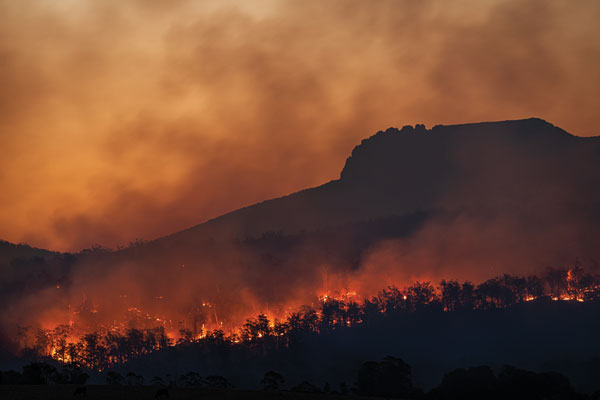‘Praise God’ offers urgent call for action
Pope Francis made it clear world leadership has not responded with the urgency the global climate crisis demands in Laudate Deum (“Praise God”), the second part to his landmark 2015 encyclical on the environment.
Francis wrote, “[T]he world in which we live is collapsing and may be nearing the breaking point,” and that environmental threats should call those of the Catholic faith and beyond to action.
“[T]he world in which we live is collapsing and may be nearing the breaking point.”
“Laudato Si’ was critical of ‘weak responses’ to climate change,” said Vince Miller, Gudorf Chair in Catholic Theology and Culture, of the first encyclical on the environment. “Laudate Deum is even more pointed, offering an entire section on the weaknesses of international politics and current forms of multilateralism.
“Francis calls for increased democratization and participation of nongovernmental groups in these processes rather than continuing to ‘support institutions’ that ‘preserve the rights of the more powerful without caring for those of all,’” Miller said, quoting from the newest encyclical.

Francis released Laudate Deum Oct. 4, the Feast of St. Francis of Assisi, patron saint of ecology, and ahead of COP28, the 2023 United Nations Climate Change Conference in Dubai, United Arab Emirates, one of the world’s richest oil exporters. Francis announced he would attend and address the summit.
Bob Brecha, professor and director of UD’s sustainability program, said Francis noted that every year without concerted action is a wasted year. He also noted every fraction of a degree saved through climate change mitigation is a small and necessary step.
The update is just as important for non-Catholics, even if written by the leader of the Catholic Church, Brecha said.
“The encyclical emphasizes a need to have a deep empathy for others, especially those less fortunate, regardless of where and when they live.”
“What the encyclical calls on humanity to do — leave the world a better place for future generations and follow the Golden Rule of doing unto others as one would want done unto them — is not exclusive to any religion, faith tradition or belief system,” Brecha said. “Because emissions in richer countries affect people in poorer countries who have less capability to adapt to climate change and will suffer the severest consequences first — and the emissions of today will have lingering effects for centuries — the encyclical emphasizes a need to have a deep empathy for others, especially those less fortunate, regardless of where and when they live.”
Brecha said Francis remains faithful to the convictions that “everything is connected” and “no one is saved alone.”
“[Francis] reiterates the concept of ‘integral ecology’ by reminding us — in the specific context of the pandemic, but also more generally — that ‘what happens in one part of the world has repercussions on the entire planet,’” Brecha said.
“[Francis] reiterates the concept of ‘integral ecology’ by reminding us ... that ‘what happens in one part of the world has repercussions on the entire planet.’”
While irreversible changes may already be unfolding, Francis calls for a paradigm shift and practical strategies to avert the worst disasters.
In an essay for America, Miller writes, “The exhortation ends starkly — not with a formulaic prayer or formal closing remark — but with the theological equivalent of a mic drop: ‘Praise God is the title of this letter. For when human beings claim to take God’s place, they become their own worst enemies.’”